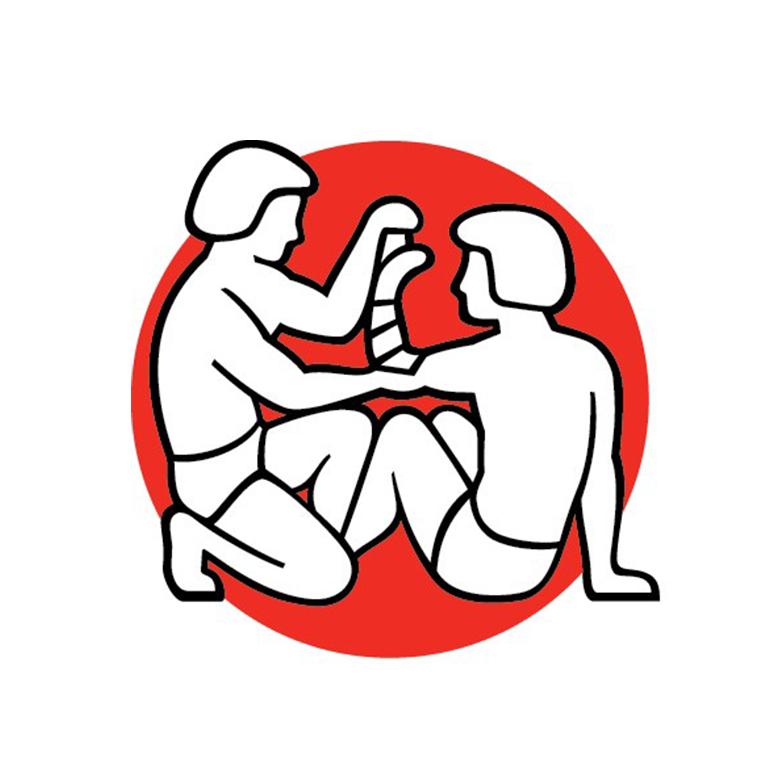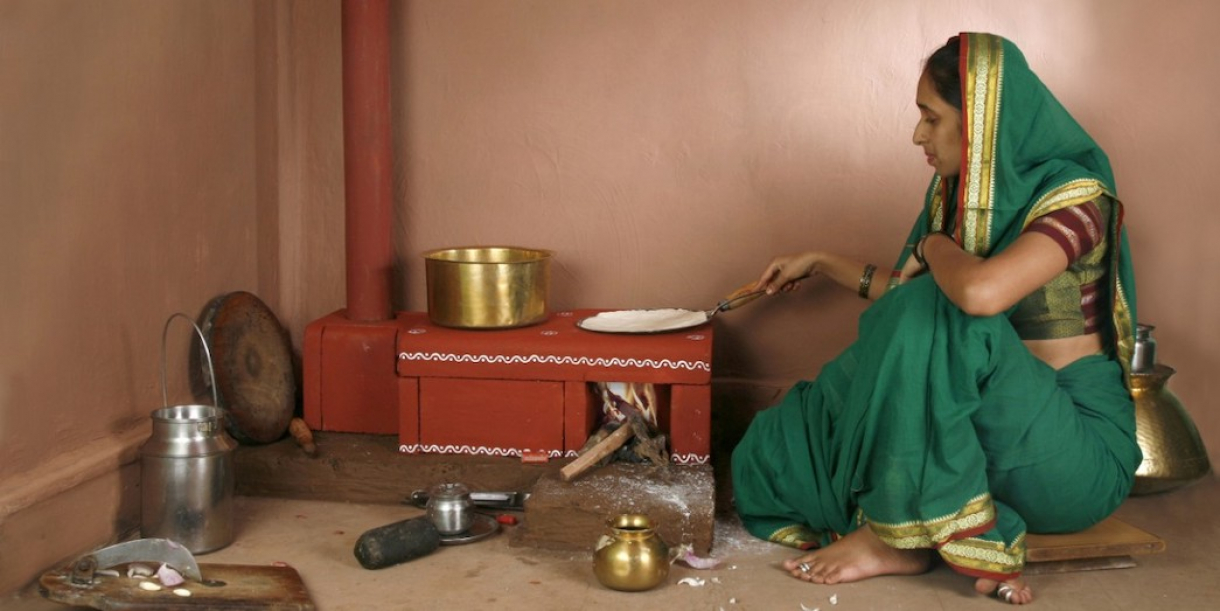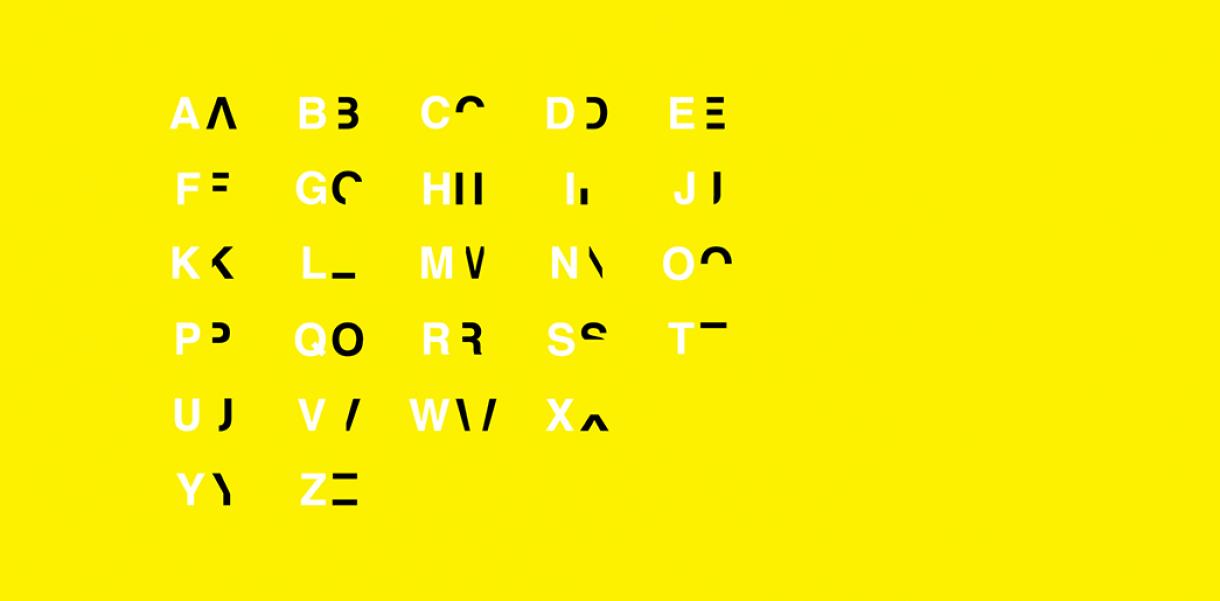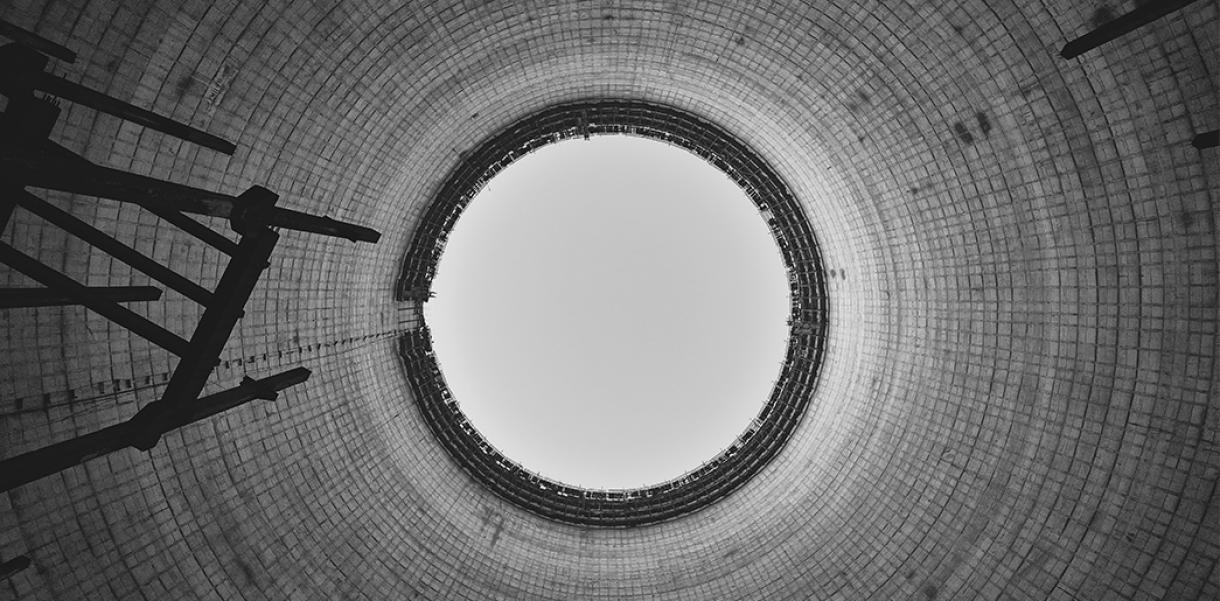
In the rural areas of Pune, India, cooking food happens on the ground. Inside the homes, locals sit beside primitive stoves or an open fire that fills the room with smoke. Preparing a hot meal comes with constant coughing and burning eyes. But that's how it's always been done; it's tradition.
Today, three billion people are cooking with biomass fuel on open fires or primitive stoves, and it comes with devastating consequences. WHO estimates, that about four million people die every year prematurely from illnesses stemming from indoor air pollution from inefficient cooking practices. We're talking respiratory diseases, strokes, heart diseases and lung cancer.
Back in 2005, Philips Experience Design decided to tackle this challenge head-on. In collaboration with NGOs in Pune, they designed a solution that could save the lives of billions: The Chulha. ”The goal for Philips was never to directly produce and market the stove but rather to empower local communities in making, distributing and using the low-smoke, low-cost solution," says Simona Rocchi who's the Director of Design for Sustainability & Innovation at Philips Experience Design.
The Chulha, meaning stove in Hindi, is a clay and cement stove, that traps smoke and heat in a local cast housing. The trapping of the heat enables quick heating of the stove's two pot-holes, which means less fuel, a 50-60% reduction, and faster cooking. The trapped smoke goes through a chimney chamber stacked with slotted clay tablets, that cleans the exhaust before the smoke leaves the assembly.
Designing the Chulha was iterative, and the stove went through multiple versions to appeal to the user. Meanwhile, Philips also wanted to enable the local NGOs to produce, train users, distribute and market the stove themselves. That's why the Chulha can be made with local materials, its modularity makes it easy to distribute to even the most remote areas, and the assembly is straight-forward. Should something break, a module can be replaced without having to make a new stove.
“You can create the most technically perfect solution but, if it doesn’t fulfil the needs and lifestyle of the user, it will never have the impact, you’re aiming for.”
Through their local stakeholders, Philips took the time to understand the context they were designing for: "You can create the most technically perfect and efficient solution but, if it doesn't fulfil the needs and the lifestyle of the user, it will never get adopted. It will never have the impact; you're aiming for," Rocchi says. One part of this was understanding the cooking traditions, and the other one was listening to the women who would use the stove.
"We initially focused on promoting the health aspect but, it became clear talking to our users that they valued the efficiency." For Rocchi, it was a reminder of the importance of bringing forward a life-improving proposition that meets the requirements of the local community. "In communities like this, health and wellness are not always the highest priority."
This was the case for a young woman named Canti, one of the early users. Before the Chulha, she had to carry up to 15 kg of firewood every day on her head to have enough fuel for cooking. "She now had to carry less," says Rocchi who interviewed her six months after she received the stove. "It freed up time for her – and though health maybe wasn't of the highest importance, she also appreciated that her eyes were not burning anymore, while she was cooking."
“We’re still to this day approached on help with training and knowledge on solutions to lower respiratory diseases.”
Through the years, the journey of Chulha has gone beyond Pune. In 2013, multiple NGOs in India approached one of the original NGOs to receive training on the Chulha toolkit, a guide to local production and distribution of the solution. Later, Philips was approached by NGOs in East Africa and Latin America, who experienced the same challenges within similar cooking habits. "The Chulha stove could help them but, the transfer of knowledge was more complex," Rocchi remembers. "For example, in Guatemala, people cook standing, so we had to reengage with local stakeholders to adapt the toolkit."
Today, the life of Chulha continues through the local NGOs, who are championing its open-source toolkit and helps the local people produce, assemble and install a stove in their homes. "It's hard to monitor the journey of the Chulha but, we're still to this day approached on help with training and knowledge on solutions to lower respiratory diseases."
At Philips Experience Design, "the journey to address complex societal changes in low-resource settings is still on-going," Rocchi says. It's all part of Philips' goals to save the life of 2.5 billion people a year by 2030, including 400 million people in underserved communities.
-
The Impact Story series features past Index Award alumni journeys and is proudly sponsored by Laerdal Global Health, winners of Index Award 2013 for The Natalie Collection.






